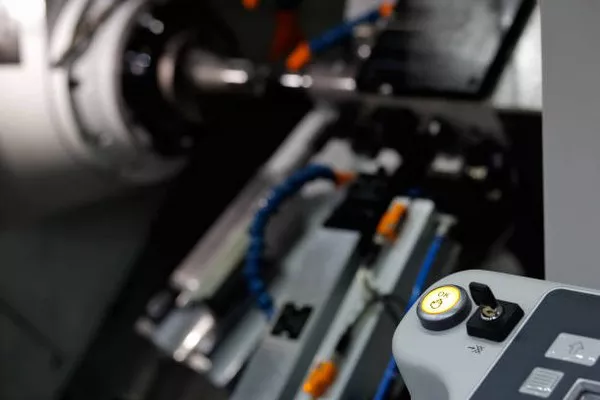Natural gas generators are a reliable source of power for residential, commercial, and industrial applications. They offer numerous advantages, such as cleaner emissions compared to diesel generators, fuel efficiency, and cost-effectiveness. However, one of the critical factors for anyone considering investing in a natural gas generator is understanding its lifespan. This article delves into how long natural gas generators typically last, factors influencing their longevity, and best practices to extend their operational life.
Understanding the Average Lifespan
The average lifespan of a natural gas generator is influenced by several factors, including the quality of the generator, frequency of use, maintenance practices, and operating conditions. Generally, a well-maintained natural gas generator can last anywhere from 10,000 to 30,000 hours of operation. For residential users, this translates to approximately 20 to 30 years of service, assuming the generator runs around 500 hours per year. Commercial and industrial users, who might run their generators more frequently, can expect a lifespan closer to the lower end of this range.
Key Factors Influencing Generator Longevity
Quality of the Generator: The initial quality and brand of the generator significantly affect its lifespan. Reputable brands like Generac, Cummins, and Kohler are known for manufacturing durable and reliable generators that can withstand prolonged use.
Frequency and Duration of Use: The more frequently a generator is used, the shorter its lifespan will be. Generators that are used as a primary power source will naturally wear out faster than those used as a backup during power outages.
Maintenance Practices: Regular and proper maintenance is crucial for the longevity of a natural gas generator. This includes routine inspections, oil changes, replacing air and fuel filters, and checking spark plugs. Adhering to the manufacturer’s maintenance schedule can significantly extend the life of the generator.
Operating Conditions: Environmental factors such as temperature, humidity, and dust can impact a generator’s lifespan. Generators operating in harsh conditions will experience more wear and tear compared to those in controlled environments.
Load Management: Running a generator at optimal load capacity, typically between 70-80% of its rated capacity, can prevent undue stress on the engine and other components. Overloading or consistently running at very low loads can shorten the generator’s lifespan.
Maintenance: The Cornerstone of Longevity
Effective maintenance is the most crucial factor in ensuring a natural gas generator reaches its maximum lifespan. Here are essential maintenance practices:
Regular Inspections: Conducting regular inspections helps identify and address potential issues before they become significant problems. This includes checking for leaks, ensuring connections are secure, and monitoring the condition of hoses and belts.
Oil and Filter Changes: Changing the oil and filters at regular intervals, as recommended by the manufacturer, is vital. Clean oil ensures the engine runs smoothly, while clean filters prevent contaminants from entering the engine.
Cooling System Maintenance: Ensuring the cooling system is functioning correctly is essential to prevent overheating, which can cause severe damage. This includes checking coolant levels and ensuring the radiator and cooling fins are clean.
Battery Maintenance: The battery is crucial for starting the generator. Regularly checking the battery’s charge and cleaning the terminals can prevent starting issues.
Exercising the Generator: Periodically running the generator, even when not in use, ensures that it remains operational. This helps in maintaining lubricated parts and prevents the fuel from becoming stale.
Professional Servicing: Engaging a professional for annual servicing can help in identifying issues that might not be apparent during regular checks. Professionals can also perform more complex maintenance tasks, such as adjusting valves and testing the electrical system.
Best Practices for Extending Generator Life
Proper Installation: Ensuring that the generator is installed correctly, following the manufacturer’s guidelines, can prevent many operational issues. This includes proper ventilation, securing the generator to prevent vibrations, and ensuring it is protected from the elements.
Using Quality Parts and Fuel: Using OEM (Original Equipment Manufacturer) parts and high-quality natural gas can prevent many common issues related to poor fuel quality or incompatible parts.
Load Management: Avoiding overloading and ensuring the generator runs within its optimal load range can significantly reduce wear and tear.
Environmental Protection: Protecting the generator from extreme weather conditions by housing it in an enclosure can prevent damage from moisture, dust, and extreme temperatures.
Monitoring Systems: Investing in monitoring systems that alert you to potential issues such as low oil pressure, high coolant temperature, or battery issues can help in taking preventive measures before a major failure occurs.
Signs That a Generator May Be Nearing the End of Its Life
Despite the best maintenance practices, all mechanical systems have a finite lifespan. Recognizing the signs that a generator may be nearing the end of its operational life can help in planning for replacement:
Frequent Breakdowns: If the generator requires frequent repairs, it may be more cost-effective to replace it rather than continuing to invest in repairs.
Increased Fuel Consumption: A noticeable increase in fuel consumption without a corresponding increase in load can indicate that the engine is wearing out.
Difficulty Starting: Persistent issues with starting, even after battery and starter maintenance, can signal the end of the generator’s reliable life.
Excessive Noise or Vibration: Unusual noises or excessive vibrations can indicate internal wear or damage.
Reduced Power Output: If the generator can no longer produce its rated power output, it may be time to consider a replacement.
See Also How Long Will a Westinghouse Generator Run on Propane?
Conclusion
Natural gas generators are a dependable and efficient solution for backup or primary power needs. With proper care and maintenance, these generators can offer many years of reliable service. Understanding the factors that influence their lifespan and adhering to best maintenance practices can help maximize your investment. By monitoring for signs of wear and addressing issues promptly, you can ensure your natural gas generator continues to operate efficiently for as long as possible.

